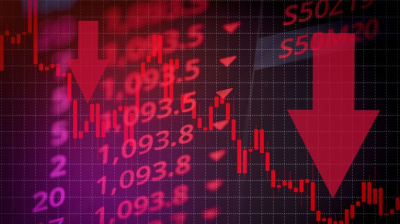A speculator is an investor who is always in the hunt for high returns, much above the market’s average, being aware this means taking higher risks. He is always on the seek for new profit-making opportunities, does not have long-term horizons, has expertise in the market in which they are trading and spends most of his time on stock market investments.
Speculation is actually one of the four possible investment strategies in the financial markets, together with portfolio investments arbitrage and hedging, says Andrea Gheorghe, director at the analysis department of Intercapital Invest (photo).
“A speculator is a person who trades with higher-than-average risk, anticipating in case of a financial tool, future price movements. Thus, speculation itself is not analogue to gambling, the person involved in this kind of strategy relies on a precursory expertise. Specula ting is not necessarily investing on short term, but taking high risks in return for high gains”, she explained.
“Being speculator is a state of mind, a permanent connection to the market and a frequent trading activity. Speculators don’t take into consideration the market’s trend or setting up a long-term portfolio, focusing more on very-short term profitable opportunities, being exposed to higher-than-average risks, in return of higher-than-average gains or losses”, said Gabriel Necula, deputy operation manager at Prime Transaction.
Rares Sofariu, development and research director at KD Capital Management thinks it is hard to define and to identify speculators at the stock market.
“In my opinion, there are only investors. It is hard to define and to identify speculators, a hint may consist in how frequent their trading activity is”, he stated.
Sofariu said there are a number of strategies an investor can use.
“For example, an investor can act on certain issuers that register higher volatility more frequently, buying and selling, and certain issuers are not trading so often, they just accumulate for dividends, and we can not label this kind of investor as speculator. But in an effort to draw a definition, a speculator in the market means taking advantage of the daily opportunities”, he added.
Translated by Camelia Oancea
Citeste si:
Calculator Salariu: Află câți bani primești în mână în funcție de salariul brut »
Te-ar putea interesa și:


















































































![HR [PLAY] Tech Workout - 11...](https://www.wall-street.ro/image_thumbs/thumbs/973/973fe0a3888d417feff63de42e814180-260x260-00-65.jpg?v=1714147436)









